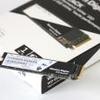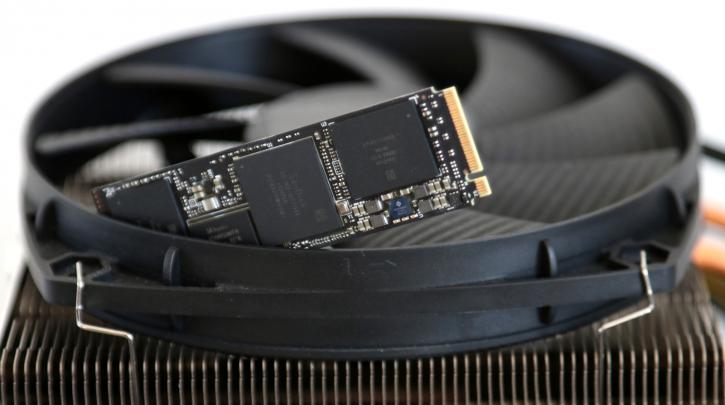Final Words & Conclusion
Final Words & Conclusion
When the WD Black NVMe SSDs where released earlier this year, the comments where simple; it's super fast yet expensive. in that respect I am happy that we tested it a bit later in the year as by now, the prices have dropped to 24 Cents per GB. For the sum of 239 EUR/USD, you will be able to pick up this 1 TB SSD, and remember this is enthusiast class performance well over that 3 GB/sec range.
That said, competition in the M2 NVMe enthusiast calls storage range is cutthroat and pretty much dominated by Samsung and Micron. Hey, credit where credit is due, they've been going strong with their design.
The performance that Western Digital offers with the WD Black is really good. Now I know we can all discuss whether you'd ever notice 2 GB/s reads over 3 GB/s reads, but if we all stick to that concept, we'd all still be using a hybrid HDD. So yes, the combination of the Sandisk proprietary controller and NAND offers really good performance. It is also good to note that performance wise the WD Black NVMe 1TB offers what is advertised and can compete with Samsungs 970 series. Remember, to fully utilize the performance that is offered for this NVMe SSD you need a supporting infrastructure and this a motherboard with PCI Express Gen3 (x4) interface and NVMe ready BIOS. NVMe based storage is one the most exciting technologies that we have been following developments closely over the past few years was obviously the development curve of NAND flash-based storage technology. We moved from a "blisteringly fast" 100 MB/sec towards numbers that are 20 to 30 fold of that in the 3.400 MB/sec ranges which I like to call eye-soaring.
Performance
Technologies like TLC and QLC face some challenges writing more bits per cell of NAND, we noticed a dropoff in performance with mixed heavy workloads that exceed writing dozens of gigabytes continuously. After you pass that 80~85 GB of writes (and I do mean continuous sustained/linear writes minute after minute), then the SLC buffer is full and start to write directly to TLC, and then perf drops substantially. After a few minutes or even seconds the SLC cache will have written out and boom, performance is back full speed. This, in a nutshell, is what you need to be aware of with TLC and QLC SSDs. IOPS performance is good on this unit, not that you'd even need values in the 250~300K range but it does manage that. This SSD writes and reads serious amounts of tiny files in a very fast fashion. We stated it before though, IOPS is not something you as a consumer should worry about too much unless you are doing a lot of database related work or create similar workloads on your PC, but this SSD certainly ranks high within this aspect. The trace tests also show exceptional performance levels, enthusiast class NVMe. Overall the series is impressive. Zoom in at both IOPS and trace performance and you'll notice that the SSD can manage serious workloads without breaking so much as a drop of sweat. So whether you write lots of small files simultaneously, copy big MKV movies or do it all together. We do need to make a remark on measured controller temperature, it runs hot under load and that can cause throttling. So please do cool down the product with a proper M2 heatsink, most motherboards supply one default these days. This is the nature of enthusiast-class M2 SSDs these days.
Concluding
Western Digital offers a storage solution that will be very satisfactory, at that 3000 MB/sec range. The storage volume size versus performance is a little more tricky to describe as it varies per size, the 250GB model does 1,600 MB/sec writes, the 500 GB sits at 2,500 MB/sec whereas the 1 TB model can deal with 2,8000 MB/sec. It comes with the nature of a number of NAND channels and chips used as well as TLC. The read metrics all are well above the 3 GB/sec with sequential and linear writes. And that does make your eyebrows move eh? So one thing we still need to talk about, the TBW values. And they are good enough, not superb though. A 1TB unit is rated at 600 TBW. So if you write 50 GB per day x 365 days, that's 18 TB per year. 600:18,25 = 32.8 Years. Write less and this SSD can outlive you when it comes to NAND writes. WD does another thing well, they top the unit off with a very nice 5-years warranty. In closing, if you want a seriously fast enthusiast class M.2. SSD, hey this one ends up easily in my personal top 5. All is dependant on the pricing of course, and at 24 cents per GB for this 1 TB unit, we feel the prices have dropped to a fair sum of money. A very nice SSD series for sure that deserves our top pick award.
Recommended Downloads



